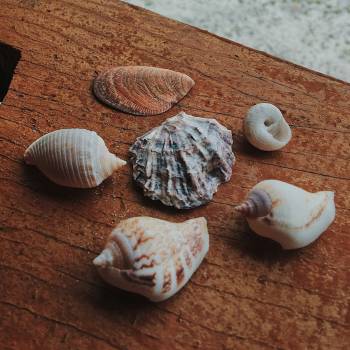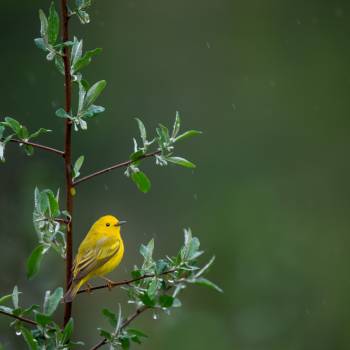بسم الله الرحمن الرحيم
Life can be tough, especially when people whom we call friends betray our trust. And at times, the narrations get so muddled due to lies and manipulations, that we end up being portrayed as the ‘bad guy’ among our circle of friends. And it hurts, isn’t it, to be betrayed, and then be painted in the wrong light?
Did you know that this happened to even the companions of Rasulullah salla Allahu ‘alayhi wa sallam (ﷺ)? Two companions were betrayed by a Muslim tribe, and in the process, got their reputations tarnished in the eyes of their society.
We begin this seerah in the early period of Hijrah, where the Muslims had to live under difficult circumstances; facing hunger and deprivation because of the scarcity of food. They had to rely on food brought from Syria, of which Rifa’ah radi Allahu ‘anhu was able to purchase some, and kept in his storage. Rifa’ah also had a very expensive war shield, which was given by Rasulullah ﷺ during the distribution of war booty that he kept in his storage as well.
One day, a Muslim man from the tribe of Bani Ubairiq, known as Bashir (or Bushair), entered Rifa’ah’s home secretly, and stole both of his weapon and food.
When Rifa’ah realised that his possessions were stolen the next morning, he went to his nephew, Qatadah radi Allahu ‘anhu, and said: “O my nephew! We were robbed during the night, our storage was broken into, and our food and weapon are gone!”
So both Rifa’ah and Qatadah carried out their investigation, and came across some people, who said that they had seen the light of fire coming from Bani Ubairiq’s house on the night the items were stolen, implying that they were probably cooking the stolen food.
Rifa’ah was pretty certain that the theft was done by Bani Ubairiq. But out of his good conduct, instead of facing this issue head-on, sent Qatadah to Rasulullah ﷺ to help resolve this matter.
So Qatadah went to Rasulullah ﷺ, and said: “A family among us are ill-mannered (i.e. Bani Ubairiq), and they conspired against my uncle Rifa'ah. They broke into his storage, and took his weapon and his food. We want them to return our weapon, but we have no need for the food.”
How beautiful were the akhlaaq of Rifa’ah and Qatadah, that they were willing to forgive and forgo the stolen food, even though food was scarce and highly valuable during those times. However, they wanted the weapon to be returned, because this was a religious matter, as the weapon was used to defend the Deen and the Muslims.
When Bani Ubairiq heard the news that Rifa’ah and Qatadah had complained to Rasulullah ﷺ, they got worried of getting caught! So they went to Rasulullah ﷺ and complained against Rifa’ah and Qatadah, saying that they were accusing them for theft without any clear evidence or proof.
As Rasulullah ﷺ could only judge by what was apparent, Bani Ubairiq remained innocent in his ﷺ judgement, and Qatadah was defeated in his argument. Rasulullah ﷺ even admonished Qatadah for accusing them without any substantial evidence.
Upon hearing this, Qatadah became very grieved! As he returned home, he said: “I wished that I had not spoken to Rasulullah about this matter, even if I had lost some of my wealth.” Such was the level of Qatadah’s love towards Rasulullah ﷺ, that he wished he was never admonished by the Prophet ﷺ, and would rather lose his properties.
When Qatadah reached home, and explained to his uncle, Rifa’ah exercised beautiful patience by saying: “And Allah is the One from whom all help is sought.”
So at this juncture…
Their food was stolen in the midst of scarcity.
Their weapon was also stolen.
Their case was dismissed by Rasulullah ﷺ.
Their reputations became tarnished due to their accusation without evidence.
And even worse, was the admonishment by Rasulullah ﷺ.
It was a calamity!
And yet despite all these, they showcased amazing akhlaaq throughout their ordeal, and they never despair of Allah’s Help and Mercy.
And subhana Allah, it was not long before the following aayat were revealed by the One above the seven heavens:
❛Surely, We have sent down to you the Book in truth, that you [O Muhammad ﷺ] might judge between men by that which Allah has shown you, so be not a pleader for the treacherous.❜ [Surah an-Nisaa’ 4 : 105]
Allah subhanahu wa ta'ala revealed to Rasulullah ﷺ to not defend the treacherous — and that was Bashir and his tribe, Bani Ubairiq. And look at the strong label Allah gave them! Because of their theft, lies, and betrayal to the Muslims, Allah labelled them as treacherous.
❛And seek the Forgiveness of Allah, certainly, Allah is Ever Oft-Forgiving, Most Merciful.❜ [Surah an-Nisaa’ 4 : 106]
This aayah was revealed to Rasulullah ﷺ for what he ﷺ said to Qadatah. Allah defended Qatadah, and cleared his and Rifa’ah’s names! The revelation was revealed until aayat 116 of Surah an-Nisaa’, where Allah admonished Bashir and Bani Ubairiq. And because of this, not only did Rifa’ah and Qatadah regain their reputation, but the stolen weapon was also returned to them. [Seerah extracted from at-Tirmidhi 3036 (Graded Fair by Darussalam), and Tafseer Ibn Kathir]
Brothers and sisters in Islam, we ask for Allah’s Protection, but in life we may meet people who will take advantage of our kindness, abuse our trust, and spread lies about us. In our effort to clear our names, and regain what was taken, never forget that Allah will always aid the ones who are oppressed. Rasulullah ﷺ said:
❛Fear the du’a of the oppressed, as there is no screen between his du’a and Allah.❜ [Sahih al-Bukhari 2448]
Even if the whole world were to go against you, Allah will help and defend you; if not in this dunya, then in the akhirah. Rasulullah ﷺ said:
❛Whoever has oppressed another person concerning his reputation or anything else, he should beg him (i.e. the oppressed) to forgive him before the Day of Resurrection, when there will be no money [to compensate for wrong deeds]. If he has good deeds, those good deeds will be taken away from him according to [the severity of] his oppression; and if he has no good deeds, the sins of the oppressed will be loaded on him.❜ [Sahih al-Bukhari 2449]
And so, I remind myself before others, to fear Allah, and fear the du’a of whom we may have oppressed. Even if we were to safeguard our daily prayers, fast in Ramadan, wear our hijaab, thinking we have done everything right when it comes to the fard (obligations), our oppression towards other servants of Allah will be exposed on the Day of Judgment. And on that Day, we will realise what we unlawfully took from others, and what we slander about others aren’t worth a single ounce of khayr. Wal-iyaadhu billah (And Allah’s refuge is sought).
On the Day when we have to stand before Allah, let it be in a way that we only have to answer for our personal shortcomings that do not involve wronging others. Because remember, Allah subhanahu wa ta'ala is not just the Most Merciful to us, but also to the people whom we oppress.
Your sister in Deen,
Aida Msr
 Aida Masuri Mustafa
Aida Masuri Mustafa 




